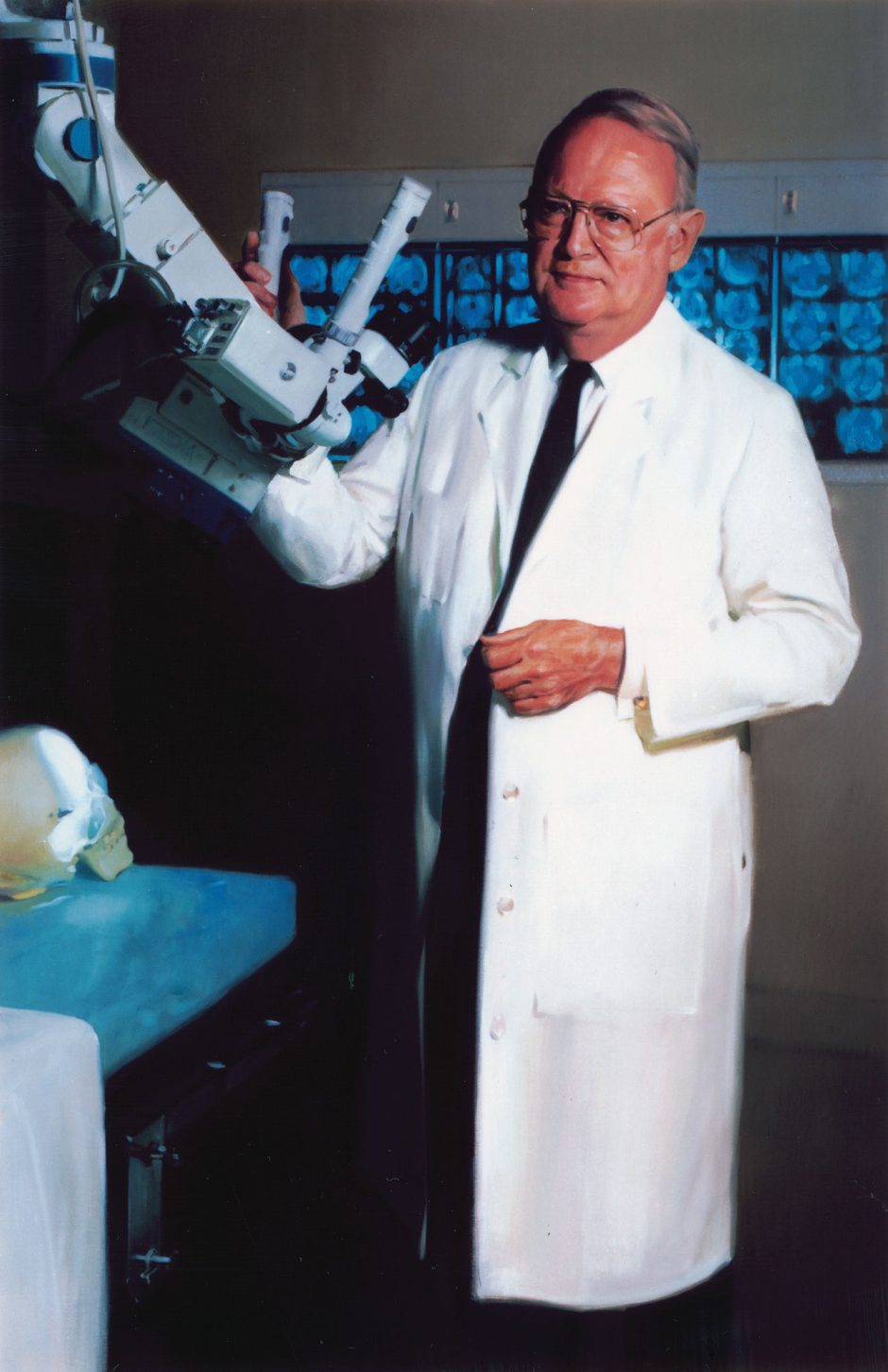
Published on Show Me Mizzou April 30, 2024
Story by Jack Wax, BS Ed ’73, MS ’76, MA ’87
Donlin M. Long (BA ’55, MD ’59), a world-renowned brain surgeon, brought a smalltown Missouri sensibility along with a masterful skill to the operating room and the halls of academia. Friendly, warm and sincere, he was just as likely to describe a difficult situation as “hard cheese” as to expound on the intricacies involved in successful surgery.
Neurosurgeon, mentor, teacher, innovator, outdoorsman and opera lover — Long, who died this past fall at 89, was all those and more. After graduating from the MU School of Medicine, Long began a trail-blazing career that advanced — some would say revolutionized — the practice of neurosurgery and helped develop a medical device that saved millions of people throughout the world from a lifetime of intractable suffering.
Long was born in Rolla and raised in Jefferson City, leaving Missouri to earn a PhD in neuroanatomy at the University of Minnesota before becoming the founding chair of the Neurosurgery Department of Johns Hopkins University School of Medicine, a position he held for 27 years. As a role model, he inspired several generations of neurosurgeons.
Medical students, residents and colleagues valued Long’s calm, steady leadership and his can-do attitude. He was best known in the medical world for his role in developing in 1981 the first external transcutaneous electrical stimulator (TENS), now prescribed throughout the world to ease pain from a variety of conditions.He also participated in the development of an implantable medical pump to administer insulin to patients with diabetes. His research on the blood-brain barrier led to the standardized use of steroids to treat brain edema in neurosurgery.
Long never lost his zest for improving the practice of neurosurgery and the education of new surgeons. After retiring from Johns Hopkins, he presented a lecture at the MU School of Medicine, where he advocated for competency-based education, with a goal of enabling others to achieve excellence in their careers, as he had done.
To read more articles like this, become a Mizzou Alumni Association member and receive MIZZOU magazine in your mailbox. Click here to join.



